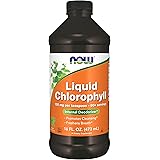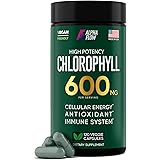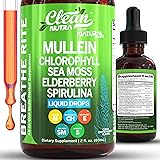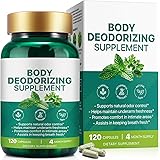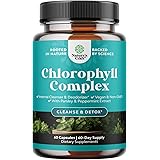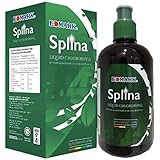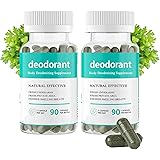Many people experience stress daily. This often means their bodies produce too much cortisol. As discussed in the video above, high cortisol can impact your health. It can lead to many frustrating symptoms. Functional medicine offers proven ways to lower cortisol levels. Let’s explore these strategies further.
Understanding Cortisol: Your Body’s “Frenemy”
Cortisol is known as your body’s chronic stress hormone. It plays a vital role in survival. When balanced, cortisol is very helpful. It supports your immune system. It also helps regulate your sleep-wake cycle.
Furthermore, cortisol can reduce inflammation temporarily. It helps control blood sugar. This keeps your cells fueled and active. Any extra fuel is stored as fat for later use. This is when cortisol acts as your friend.
When Cortisol Becomes the Enemy
Problems start when cortisol levels stay too high. Too much cortisol raises your blood sugar. This can keep you in fat storage mode. It makes fat loss very difficult. High cortisol also affects other hormones. It can block helpful progesterone, for instance. This might lead to estrogen dominance.
Over time, elevated cortisol can disrupt many body systems. Your immune system may suffer. Your natural sleep rhythm (circadian rhythm) can get messy. Metabolism also takes a hit. High cortisol often causes feelings of anxiety and depression. It can lead to chronic fatigue and pain. Some people experience heart palpitations or stress hives. Essentially, chronic high cortisol causes general misery.
Cortisol release is not only linked to mental stress. Physical stressors also trigger it. These include infections or autoimmune conditions. Hormone imbalances can also raise cortisol. It is important to address all potential causes.
Strategies to Lower Cortisol Levels Naturally
Many science-based approaches can help balance cortisol. These strategies focus on nutrition and natural support. They help your body adapt to stress better. Let’s look at five key functional medicine strategies.
1. Optimize Your Diet with Protein, Healthy Fats, and Fiber
Cortisol reacts to blood sugar highs and lows. Eating certain foods helps keep blood sugar steady. This reduces the demand for cortisol. Protein, healthy fats, and fiber are crucial for this balance.
These nutrients provide extended-release energy. They slow down how quickly your body processes food. This prevents sharp blood sugar spikes. It also avoids sudden crashes. Think of them as a steady fuel supply. This means less insulin is needed. Less insulin demand often means less cortisol is released.
Examples of beneficial foods include lean meats, fish, and eggs. Avocados and nuts offer healthy fats. Vegetables and whole grains provide plenty of fiber. Choosing these foods supports stable blood sugar. This helps to reduce high cortisol effects.
2. Reduce Your Caffeine Intake
When chronic stress is high, energy levels often drop. You might feel groggy in the morning. Fatigue and poor concentration are common. This makes coffee or other caffeinated drinks appealing. They offer a quick energy boost.
However, caffeine directly stimulates your adrenal glands. These glands produce more cortisol. They also make other stress hormones. This creates a challenging cycle. Your body gets more stressed. You then rely more on caffeine for energy. Cutting back on caffeine can break this spiral. Even reducing your intake helps a lot.
3. Incorporate High-Quality Fish Oil
Omega-3 fatty acids are essential for health. They support many body functions. These fatty acids are found in fish oil. Fish oil has been shown to lower cortisol. It helps reduce widespread inflammation. It also supports healthy brain function. Neurotransmitters, your brain’s happy chemicals, benefit greatly.
When choosing fish oil, quality truly matters. Toxins and heavy metals can accumulate in fat. This includes fatty fish and some supplements. Always look for pure, high-quality products. This ensures you get the benefits safely.
4. Replenish Stress-Specific Vitamins
Chronic stress and high cortisol deplete key nutrients. Your body uses these vitamins faster. Diet alone might not be enough. Many people have low levels of vital vitamins. This is often seen in lab tests.
Stress can cause you to lose magnesium. Magnesium is important for bone density. It also affects muscle relaxation. Low magnesium can lead to headaches. It can worsen anxiety and sleep problems. Stress also depletes several B vitamins. These are crucial for nerve health. They impact energy levels and hormone balance. Testing can reveal these deficiencies. This allows for targeted replenishment.
5. Explore Adaptogenic Herbs
Adaptogens are special plants. They help your body adapt to stress. They work through various pathways. Many adaptogens can help lower cortisol. They bring your body back to balance.
Panax Ginseng is a well-researched adaptogen. It is known for managing cortisol levels. Ashwagandha is another famous choice. It offers both calming and energizing effects. Rhodiola works differently. It acts on the brain. It improves mental function. It reduces feelings of overwhelm. It also lowers your perception of stress.
Choosing adaptogens requires care. The right plant part is needed. Correct concentration and extraction are vital. The proper dose is also key. The quality of these supplements is very important. If you haven’t seen results, try a higher quality product. A specialized blend might also be beneficial.
High cortisol symptoms can range from annoying to serious. Fortunately, effective steps exist. You can improve your relationship with this “frenemy” hormone. By applying these functional medicine strategies, you can begin to lower cortisol levels. Taking proactive steps can lead to a healthier, more balanced life.


